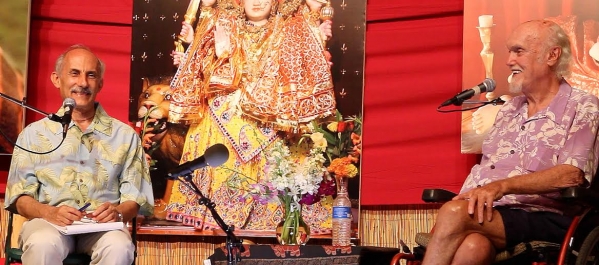No matter how old a mother is, she watches her middle-aged children for signs of improvement. —Florida Scott-Maxwell
Looking closely at personality and temperament is like looking closely at the body. The human body looks best when viewed from an intermediate distance, in soft light. When we look more closely, we see the pores, the teeth, the body hair, the shape, the blemishes. Even the youngest and most beautiful bodies can seem terribly flawed to their inhabitants. Observing the personality is even more distressing.
When students first sit with themselves on a silent meditation retreat, their personality patterns are magnified. Halfway through one retreat, a student’s hand-lettered note appeared on the bulletin board with these words: “Self-knowledge is bad news.” Aversive types become aware of hundreds of judgments—of themselves, of the other students, of the teacher, the room, and on and on.
Grasping types discover their perennial hunger for what they are missing. They want the best seat, the coziest room, the big piece of dessert. Their addictive nature intensifies.
If they are a confused type, their doubts become huge. They wonder what they are doing here and why. They doubt the teachers, they question the value of sitting quietly, they doubt themselves—Am I worth all this attention?
One student confessed that in trying to compensate for his personality, he spent five years of practice simply trying to look different. Another said what she hoped for was a total personality transformation. But it doesn’t happen that way. We have to work with what we’ve got.
The good news is that we are not our personalities. At times, I think of the personality as a stubborn and demanding pet. We can train it to have better manners, but for the rest of its life, it will require a certain amount of affection, water, and kibble. It helps to have some humor in tending this pet, whatever its quirks are.
Once we recognize the patterns of personality, we can see them for what they are: simply different patterns of energy. This perspective is so helpful to see in a marriage, a partnership, a community. Our personalities are not wrong, they are simply different. When we accept this fact, we can hold them with spacious consciousness.
Critical and argumentative, gregarious or shy, confused or chaotic, each holds tremendous potential. The sage Krishnamurti sees this acceptance as the ground of awakening. “As long as you are trying to be something other than what you actually are, your mind wears itself out. But if you say, ‘This is what I am, it is a fact that I am going to investigate and understand,’ then you can go beyond.”
With acceptance comes compassion for yourself, trying to do the best you can on this human journey, and for others who are in the same boat. A wiser, more tender heart grows that can hold all the foibles and quirky sides of everyone’s personality with some bemusement. We remember that who we are is so much more than the personality. We are the conscious spirit born into this body, we are the loving awareness that witnesses it all, beyond our conditioning and fears. Witnessing the personality with tenderness opens the gates to freedom and love.






